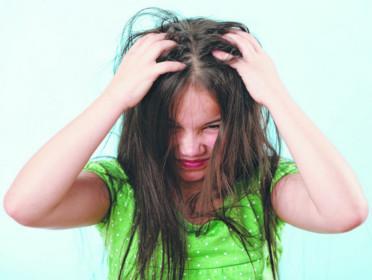Nursing
Nursing
The Coos Bay School District is proud to have the opportunity to provide nursing in our schools and to be able to offer medical services through our school-based health center located at Marshfield High School.
Thanks to the grant writing skills of Nurse Karen Brown and the Bay Area Hospital, all of our schools have at least one AED on site for students, staff and the community to have a better chance to survive a heart attack.
The Nurses
Phone: 541-267-7284
Emily Parkhurst, RN – Nurse at Eastside, Millicoma, Nursing Coordinator
Krista Spencer, RN – Nurse at Marshfield Junior High and Marshfield High School
Beverly Hernandez, RN – Nurse at Madison, Sunset, and Destinations- Nursing Coordinator
What’s New!
Please review the District Covid-19 changes letter (English/Spanish) explaining when to keep your child home from school, and when they can return.
Students with Health Concerns:
If your child has a medical diagnosis or health concern such as:
- ADHD
- Asthma
- Diabetes
- Heart condition
- A neurologic condition, including seizures
- Gastrointestinal concern
- Urologic concern
- Takes prescription medication at school
- Other condition that may require specialized care or accommodations
Please have your child’s physician update his/her medical statement and school orders. The paperwork and prescribed medications may be brought into your designated school starting on August 27th. Nurses can be at 541-267-7284 for any concerns or questions. This line is confidential, so please feel free to leave a brief message. If you leave a message, be sure to include the name of the child, school child will be attending, and your phone number.
Medication Pick-Up:
Please make arrangements to pick up all prescription and non-prescription medications that your child has at school. All medications/inhalers need to be picked up by parent/guardian on or before the last student day of school. Any medications/inhalers that are not picked up will be disposed of on the day after school concludes each year.
Please contact your school’s office with any questions.
When to Keep you Child Home from School 
Sometimes, when your child is sick, it’s hard to decide whether they should stay home or whether they should “tough it out” at school. A good rule of thumb is a child that has a temperature of 100ºF or greater should stay home until they are fever free for 24 hours without taking fever-reducing medicine. If a child has vomiting or diarrhea, they should stay home until they are Symptom-free for 48 hours OR with orders from a doctor to school nurse. This decreases the chance of spreading illness in the classroom. Please see the "When to Keep Children Home guidance below for more details.
Immunization News
Now is a great time to get caught up on immunizations! Click here for the current required vaccines
If your child does not have a pediatrician or you are having difficulty scheduling an appointment, Coos Health and Wellness (North Bend Annex building) offers immunizations. They can bill Oregon Health Plan, Pacific Source, Blue Cross/Blue Shield, Providence, ODS/Moda, and LifeWise with when provided an insurance card.
Immunization Rates March 2024

As cases of lice are reported, we as a school would like to offer you some additional education and resources on the determined pest, head lice.
Head lice are tiny insects that feed on blood from the human scalp. An infestation of head lice, most often affects children and usually results from the direct transfer of lice from the hair of one person to the hair of another. Most of the time not spread at school.
Common signs and symptoms can include:
- Itching on the scalp, neck and ears is the most common symptom. This is an allergic reaction to louse saliva.
- Lice on scalp. Lice may be visible but are difficult to spot because they are small and very quick
- Lice eggs (nits) on hair shafts. Nits stick to hair shafts. They are small oval shaped eggs, normally white to light brown in color. Nits may be difficult to see because they are very tiny. They are easiest to spot around the ears and the hairline of the neck.
Over-the-counter and prescription medications are available to treat head lice. Following treatment instructions carefully is important for ridding your scalp and hair of lice and their eggs. This includes treating the person and their home, most importantly their recently used sleeping area and clothing.
* A number of home or natural remedies are used to treat head lice infestations, but there is little to no clinical evidence of their effectiveness.
Our CBD9 policy states a student who is found to have lice at school is allowed to continue their school day, treatment is recommended before remittance the next day. If you have any concerns or would like more information, please contact your school’s office staff or school nurse.
Medication at School

Completed forms should be turned into the nurse or office staff along with the medication. Medications should be brought in by a parent or guardian, not sent to school in a backpack with the child. Please be prepared to count the medication with staff and sign it in.
If the medication is prescribed by a doctor, it must be in its original container/box with an intact prescription label. This is important to ensure that we follow the doctor’s instructions to keep your child safe.
If the medication is over-the-counter (OTC), such as Tylenol or Ibuprofen, it must be age appropriate (under 12 requires children’s dosage) and must come in the original container. We must treat your child according to instructions on the bottle; if you wish to deviate from these instructions, a doctor’s note must be provided.

Childhood tooth decay in Oregon is above the national average, particularly among children in lower-income households. If left untreated, dental disease can have serious effects on a child’s academic success, self-image, and overall long-term health. The good news is, dental disease can be prevented!
Coos Bay School District partners with Advantage Dental, which provides a dental screening, fluoride treatment, sealants, and oral health education to all students during a designated school day free of charge, whether your child has insurance or not. This is a very valuable service and we hope you take advantage of it! A permission form should have been included in your registration paperwork. Even if you wish to opt out, please fill out and sign the form and return for data collection purposes. If you did not find this form in your registration packet or can’t recall filling it out, feel free to ask for another form at the office or
If your child is experiencing dental pain or issues and you are having trouble accessing care, please contact your school nurse. We can help!
For more health resources contact:
http://cbirt.org/ (For information and resources regarding traumatic brain injuries/concussions)
http://www.nationaleatingdisorders.org/ (For information about eating disorders)